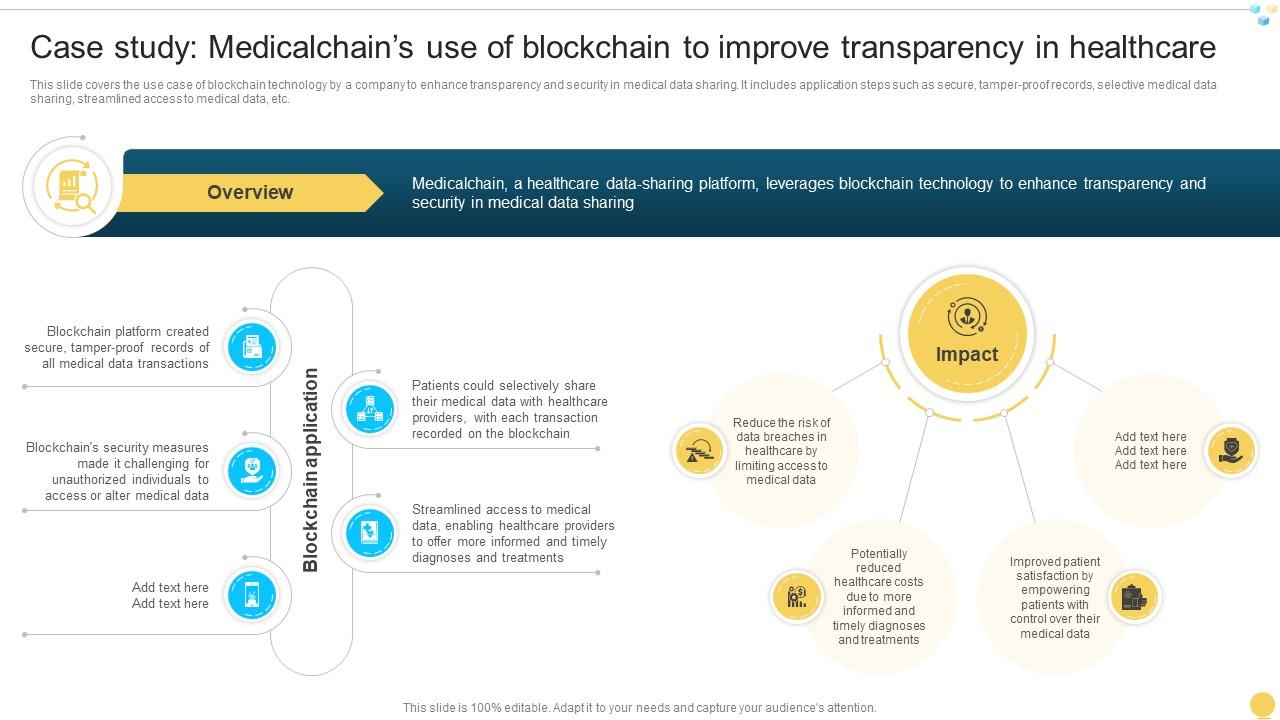Blockchain in Healthcare: Enhancing Data Security and Access

- Understanding the Basics of Blockchain Technology
- The Importance of Data Security in Healthcare
- Benefits of Implementing Blockchain in the Healthcare Industry
- Challenges and Limitations of Blockchain in Healthcare
- Improving Patient Access to Medical Records with Blockchain
- Future Trends and Innovations in Blockchain Technology for Healthcare
Understanding the Basics of Blockchain Technology
Blockchain technology is a decentralized, distributed ledger system that securely records transactions across a network of computers. Each block in the chain contains a list of transactions, and once a block is added to the chain, it is immutable and cannot be altered. This ensures transparency and security in data management.
One of the key features of blockchain technology is its ability to provide a high level of security. The data stored on a blockchain is encrypted and linked to previous blocks, making it resistant to tampering or hacking. This makes blockchain an ideal solution for industries like healthcare, where data security and privacy are paramount.
In the healthcare sector, blockchain technology can enhance data security and access by providing a secure and transparent way to store and share patient information. By using blockchain, healthcare providers can ensure that patient data is accurate, up-to-date, and easily accessible when needed.
Furthermore, blockchain technology can streamline processes such as insurance claims processing, medical record management, and drug supply chain tracking. By leveraging blockchain, healthcare organizations can reduce administrative costs, improve efficiency, and enhance patient care.
Overall, understanding the basics of blockchain technology is essential for healthcare professionals looking to enhance data security and access in their organizations. By implementing blockchain solutions, healthcare providers can improve data management practices, protect patient information, and ultimately deliver better care to their patients.
The Importance of Data Security in Healthcare
Data security is a critical aspect of healthcare, as patient information is highly sensitive and must be protected from unauthorized access or breaches. With the increasing digitization of medical records and the sharing of data among healthcare providers, the risk of security threats has also grown. Blockchain technology offers a solution to enhance data security in healthcare by providing a decentralized and immutable ledger that ensures the integrity and confidentiality of patient information.
By utilizing blockchain in healthcare, organizations can create a secure and transparent system for storing and sharing data. Each transaction is encrypted and linked to the previous one, creating a chain of blocks that are resistant to tampering or hacking. This not only protects patient data from cyber attacks but also ensures that information is only accessed by authorized individuals, enhancing overall data security in the healthcare industry.
Furthermore, blockchain technology allows for granular control over data access, enabling healthcare providers to specify who can view or modify information. This helps prevent data breaches and ensures that patient privacy is maintained at all times. Additionally, the decentralized nature of blockchain eliminates the need for a central authority to oversee data transactions, reducing the risk of a single point of failure and enhancing the overall security of the system.
Benefits of Implementing Blockchain in the Healthcare Industry
Implementing blockchain technology in the healthcare industry offers numerous benefits that can revolutionize the way patient data is managed and accessed. Some of the key advantages include:
- Enhanced Data Security: Blockchain provides a secure and tamper-proof way of storing patient information, reducing the risk of data breaches and unauthorized access.
- Improved Data Integrity: The decentralized nature of blockchain ensures that data remains accurate and up-to-date, enhancing the overall integrity of healthcare records.
- Streamlined Data Sharing: Blockchain enables seamless and secure sharing of patient data among healthcare providers, leading to better coordination of care and improved patient outcomes.
- Increased Transparency: With blockchain, patients have greater visibility into who is accessing their data and for what purpose, promoting trust and accountability in the healthcare system.
- Efficient Claims Processing: By automating and digitizing the claims process, blockchain can help reduce administrative costs and minimize errors in billing and reimbursement.
Overall, the implementation of blockchain in healthcare can lead to a more secure, efficient, and patient-centric system that prioritizes data privacy and accessibility. As the technology continues to evolve, its potential to transform the healthcare industry for the better is becoming increasingly evident.
Challenges and Limitations of Blockchain in Healthcare
While blockchain technology offers numerous benefits for healthcare data security and access, it also comes with its own set of challenges and limitations that need to be addressed. One of the main challenges is the scalability of blockchain networks, as the current infrastructure may not be able to handle the large volume of data generated in the healthcare industry. This can lead to slower transaction speeds and increased costs for network participants.
Another limitation of blockchain in healthcare is the issue of interoperability, as different healthcare systems may not be able to communicate effectively with each other due to varying data formats and standards. This can hinder the seamless sharing of patient information across different providers and organizations, which is crucial for delivering high-quality care.
Moreover, the regulatory environment surrounding blockchain technology in healthcare is still evolving, which can create uncertainty for organizations looking to implement blockchain solutions. Compliance with data privacy laws such as HIPAA is essential, and ensuring that patient data is secure and protected is paramount.
Additionally, the complexity of blockchain technology itself can be a barrier to adoption in healthcare. Many healthcare professionals may not have the technical expertise to understand and implement blockchain solutions effectively, which can slow down the integration process.
In conclusion, while blockchain has the potential to revolutionize healthcare data security and access, it is important to be aware of the challenges and limitations that come with it. By addressing issues such as scalability, interoperability, regulatory compliance, and technical complexity, healthcare organizations can harness the full potential of blockchain technology to improve patient care and outcomes.
Improving Patient Access to Medical Records with Blockchain
Blockchain technology has the potential to revolutionize the healthcare industry by improving patient access to medical records. By utilizing blockchain, patients can securely access their medical data from anywhere in the world, allowing for more seamless and efficient healthcare delivery.
One of the key benefits of using blockchain for medical records is the enhanced security it provides. With blockchain, patient data is encrypted and stored across a decentralized network, making it nearly impossible for hackers to access or tamper with the information. This increased security gives patients peace of mind knowing that their sensitive medical data is safe and protected.
Furthermore, blockchain technology allows for greater transparency and accountability in the healthcare system. Patients can track who has accessed their medical records and when, providing a clear audit trail of who has viewed their information. This transparency helps to build trust between patients and healthcare providers, ultimately improving the overall quality of care.
Overall, implementing blockchain in healthcare can lead to improved patient outcomes, increased efficiency, and enhanced data security. By leveraging this innovative technology, the healthcare industry can take a significant step forward in providing better, more patient-centered care.
Future Trends and Innovations in Blockchain Technology for Healthcare
The future of blockchain technology in healthcare holds promising trends and innovations that are set to revolutionize the industry. One key trend is the use of smart contracts, which are self-executing contracts with the terms of the agreement directly written into code. This can streamline processes such as insurance claims, medical record sharing, and supply chain management, leading to increased efficiency and transparency.
Another innovation on the horizon is the integration of blockchain with other emerging technologies such as artificial intelligence and Internet of Things (IoT). By combining these technologies, healthcare providers can create a more interconnected and secure ecosystem for managing patient data, tracking medical devices, and monitoring health outcomes in real-time.
Furthermore, the development of decentralized identifiers (DIDs) and verifiable credentials on the blockchain can enhance data security and privacy for patients. DIDs allow individuals to have control over their own digital identities, while verifiable credentials enable trusted parties to verify information without compromising sensitive data.
Overall, the future of blockchain in healthcare is bright, with advancements in smart contracts, integration with other technologies, and enhanced data security paving the way for a more efficient and patient-centric healthcare system. As these trends continue to evolve, we can expect to see significant improvements in data access, interoperability, and overall quality of care in the healthcare industry.





